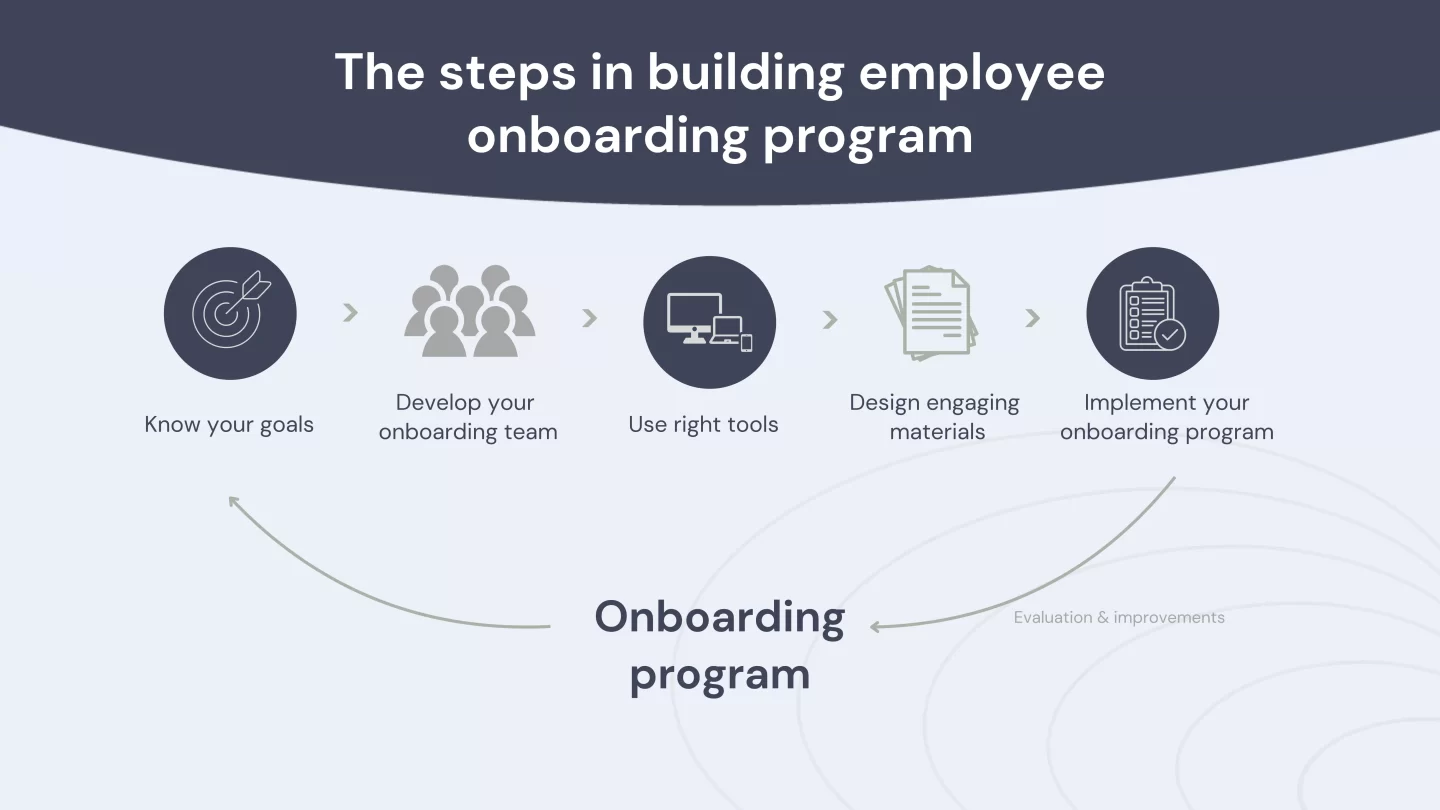Onboarding refers to the structured process of integrating a new employee into an organization. It involves familiarizing the new hires with company policies, their specific role, and the corporate culture. This process aims to equip employees with the necessary tools and knowledge to become effective and engaged members of the organization swiftly.

Importance of Onboarding
Employee Engagement
It significantly enhances employee engagement. Engaged employees are more productive, exhibit greater job satisfaction, and are likely to stay longer with the company. This process helps new hires understand their roles and how they contribute to the organization’s overall goals, fostering a sense of belonging and purpose.
Components of Onboarding
Orientation Sessions
Orientation sessions are typically held on the new hire’s first day or week. These sessions cover company policies, introduce key team members, and provide an overview of the company’s mission and values.
Mentorship and Support
Assigning a mentor or a buddy to a new hire can provide invaluable support. Mentors help new employees navigate the organizational culture, answer questions, and provide guidance throughout the process.
Pre-Onboarding Activities
Pre-onboarding activities set the stage for the new hire’s first day. These can include sending welcome emails, completing necessary paperwork, and providing access to an employee portal.
Training Programs
Training programs can help new hires acquire the skills needed for their job. It ranges from general company-wide training to specific role-based training.
Stages of Onboarding
Pre-Onboarding
It occurs before the employee’s first day. It includes activities like sending welcome emails, providing necessary paperwork, and giving access to the employee portal. This stage sets the tone for the new hire’s experience and helps alleviate first-day anxieties.
Day One
The first day is crucial for creating a positive first impression. It typically involves introductions, a tour of the workplace, and an overview of the company’s mission and values. Day one activities aim to make the new hire feel welcomed and informed.
First Week
During the first week, the new employee receives more detailed information about their role and begins initial training. This period is critical for setting expectations and building relationships with colleagues.
First Month
The first month is about deeper integration into the team and the company. Continuous support and feedback are essential during this period to ensure the employee is adjusting well and understands their responsibilities thoroughly.
Best Practices for Effective Onboarding
Clear Communication
Clear and consistent communication is vital for successful onboarding. Providing a well-structured plan and regular check-ins can help new hires feel supported and valued.
Role-Specific Training
Tailoring the onboarding process to the specific role ensures that the new employee receives the most relevant training. This approach helps them become productive more quickly and feel confident in their position.
Feedback and Support
Offering regular feedback and support during the onboarding process helps new hires improve and feel more engaged. Constructive feedback should be given to guide them, and any concerns they have should be addressed promptly.

As HR professionals, the steps you should know in building employee onboarding program. Source.
Challenges in Onboarding
Common Pitfalls
Common onboarding pitfalls include lack of preparation, unclear expectations, and insufficient training. These issues can lead to confusion, disengagement, and high turnover rates.
Overcoming Challenges
To overcome these challenges, companies should develop a comprehensive plan, ensure all necessary resources are available, and assign mentors to new hires for guidance and support.
Measuring Onboarding Success
Key Performance Indicators (KPIs)
Measuring the success of the onboarding process involves tracking KPIs such as employee retention rates, time to productivity, and engagement levels. These metrics provide insights into the effectiveness of the onboarding program.
Employee Feedback Surveys
Gathering feedback from new employees about their onboarding experience helps identify areas of improvement. Surveys can reveal what aspects of the process were most helpful and what needs adjustment.
Onboarding and Company Culture
Cultural Assimilation
It plays a crucial role in cultural assimilation, helping new hires understand and embrace the company’s values and norms. This integration is essential for building a cohesive and motivated workforce.
Inclusion and Diversity
A well-designed process promotes inclusion and diversity by ensuring that all new employees, regardless of their background, feel welcomed and supported.
Conclusion
In summary, effective onboarding is a critical component of employee integration and retention. By understanding its importance, following best practices, leveraging technology, and continuously measuring success, organizations can create a seamless experience that benefits both the new hires and the company.
Frequently asked questions
What is the onboarding process?
It is the process of integrating a new employee into an organization, which includes introducing them to company culture, policies, and their specific role.
Why is onboarding important?
It is essential as it enhances employee engagement, reduces turnover rates, and helps new hires become productive members of the organization quickly.
How can onboarding be made more effective?
Effective onboarding can be achieved through clear communication, role-specific training, regular feedback, and support, and using technology like software and digital learning platforms.






